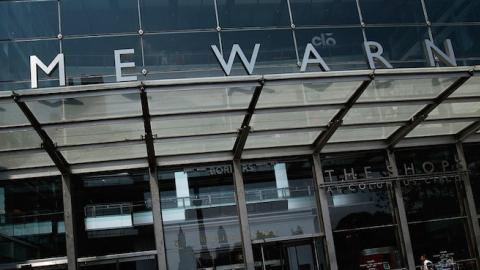As the Federal Communications Commission's Sept. 15 deadline for public comment on its new net-neutrality rules approaches, the "open Internet" movement has taken an unexpected turn toward undermining free speech. Net-neutrality activists have long tried to sell the public on the need to protect people from Internet service providers blocking or degrading consumer access to websites and online applications. Now the cable industry has jumped on the net-neutrality bandwagon.
Historically, cable companies vehemently opposed new rules governing Internet network management. Why? Because nothing is broken in the Internet-access market that needs fixing, and existing laws could prevent or fix any future problems. Also, new net-neutrality rules would politicize business and engineering decisions and slow down lightning fast developments in the Internet space to the sclerotic crawl of Washington bureaucrats.
Now, however, as a third misguided FCC attempt to implement net neutrality gains momentum, Time Warner Cable and the National Cable and Telecommunications Association are trying to drag Internet "edge" providers—including the websites of local broadcasters airing ABC, CBS, NBC and Fox—down with them into the regulatory abyss.
The "edge" of the Internet is where consumers go to get content such as movies from Amazon, streaming online TV shows from broadcasters and apps from companies like Uber. Thousands of start-ups sprout each year while billions in private risk capital is being plowed into a new economy that is providing unprecedented consumer freedom and benefits. Today's Internet blossomed precisely because the government kept its hands off of it.
Until now.
The FCC's attempt to turn the Internet into what amounts to a federally regulated public utility—all in the name of protecting consumers—has produced tortured logic among cable interests: If Internet service providers are going to be regulated, then websites that their subscribers watch—especially broadcasters' sites—should be regulated too.
According to comments filed with the FCC by Time Warner Cable and the National Cable and Telecommunications Association, broadcasters should not be allowed to take down or withhold the content they produce and own from online distribution even if subscribers have not paid for it—as a matter of federal law. In other words, edge providers should be forced to stream their online content no matter what. Such an overreach, of course, would lay waste to the economics of the Internet. It would also violate the First Amendment's prohibition against state-mandated, or forced, speech—the flip side of censorship.
It is possible that the cable companies figure that subjecting powerful broadcasters to anti-free speech rules will shift the political momentum in the FCC and among the public away from net neutrality. But cable's anti-free speech arguments play right into the hands of the net-neutrality crowd. They want to place the entire Internet ecosystem, physical networks, content and apps, in the hands of federal bureaucrats.
For instance, Columbia law professor Tim Wu, the architect of the movement who coined the term "net neutrality," testified before Congress in June that new rules should "capture" "media policy, social policy" and even FCC "oversight of the political process." His goal, and that of his myriad followers, is to have "FCC oversight of the Internet." Period.
Mr. Wu has outsize influence over regulators. He penned the first-ever net-neutrality conditions that were part of the FCC's approval of the AT&T -BellSouth merger in 2006. And he now appears to have a powerful industry ally, albeit perhaps unwittingly, in cable.
But America's cable companies should be careful what they wish for. History teaches us that once you invite regulators into your neighborhood to regulate your rival, it won't stop at the house across the street. Having cable argue for dragging edge-based content providers, like broadcasters or anyone else, into the morass only adds momentum to the net-neutrality effort.
Instead of sympathizing with its captors and helping to expand the dragnet of unnecessary regulations to every corner of the Internet, cable should flatly oppose new rules. The FCC has an unsuccessful track record in court after two similar power grabs in 2010 and this past January, so there's good reason to believe a hat trick of losses is in the making. Now is not the time to panic; it is the hour to persist in favor of a free Internet, and to begin preparing court appeals.




















